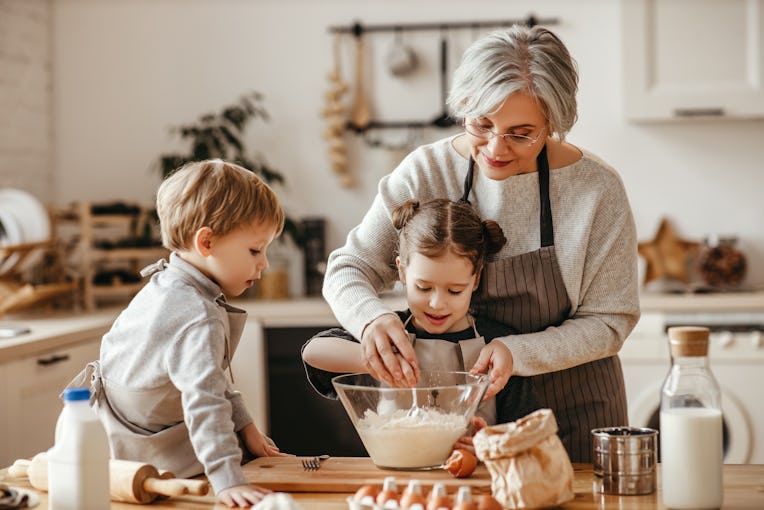Grandma Does Have a Favorite and It’s Not Her Adult Child
A study suggests that nana and grandkids share a special emotional bond

Allow me to conjure a scenario in your mind:
You’re a young parent. Your mom is always begging to come over and help watch your toddler and the new baby. You always say yes because you need some fucking sleep, and besides, you see how she is with the kids: all soft eyes and gentle crooning, handling them like they’re the most precious treasures on earth.
“Look at you — you love them way more than you love me,” you sometimes accuse her, half jokingly.
“Oh, stop,” she replies, rolling her eyes. “Of course I’m like this, they’re babies! Besides, sweetheart, you know you’ll always be my original baby.”
Satisfied with her answer (and besides, you were obviously kidding anyway), you leave grandma and her babies to their playing and head to your bedroom for a quick nap, secure in your mother’s everlasting love for you…
Well, I’m sorry to break it to you, but your imaginary mom may have been duping you. A new study by a team of Emory University researchers found that grandmothers’ brain activity indicated more of an emotional response when it came to their grandchildren, as opposed to their adult children.
The study — published in the scientific journal Proceedings of the Royal Society B — used functional magnetic resonance imaging (fMRI) to measure 50 grandmothers’ brain functions when they each viewed photos of their grandchild, an unknown child, their adult child, and an unknown adult. The neural snapshots showed that most participants had more activity in brain areas involved with emotional empathy and movement when they were looking at photos of their grandchild.
“What really jumps out in the data is the activation in areas of the brain associated with emotional empathy,” says James Rilling, a professor at Emory and the lead author of the study, per a news release published on the university’s website. “That suggests that grandmothers are geared toward feeling what their grandchildren are feeling when they interact with them. If their grandchild is smiling, they’re feeling the child’s joy. And if their grandchild is crying, they’re feeling the child’s pain and distress.”
In contrast, grandmothers viewing photos of their adult children had stronger brain activation related to cognitive empathy. According to the release: “That indicates they may be trying to cognitively understand what their adult child is thinking or feeling and why, but not as much from the emotional side.”
Obviously, there are limitations to the study — the number of participants, as well as the fact that the participants were largely mentally and physically healthy women who are “high-functioning grandmothers” — but the research at least seems to suggest a special bond between grandmothers and grandchildren. (In fact, biology researchers have even posited something called the “grandmother hypothesis,” asserting that women tend to live longer because they serve evolutionary benefits for their children and grandchildren, which is kinda messed up if you think about it.)
Sorry, adult offspring everywhere. Next time maybe reconsider having kids if you don’t want to have to compete with a drooling 1-year-old for mommy’s affection.